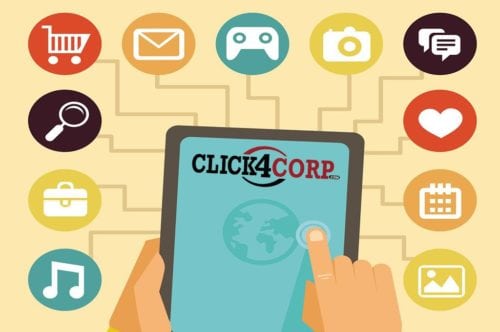
Does A Small Business Really Need A Website?
The second decade of the New Millennium is just over, and if your small business still doesn’t have a website, it’s probably because you’ve either been quoted scandalous prices, are intimidated by technology, don’t understand how it can support your business, or a combination of the three.
We hope that the following insights will give you a fresh perspective on how a website is potentially the most cost-effective marketing tool you have in your sales prospecting arsenal. In down economies, it’s often difficult for businesses to survive, let alone grow and thrive. If you’re in a small business for the long haul or are experiencing a downturn in sales, then you must use every tool at your disposal. And a website is like five marketing tools in one, as you’ll soon find out!
5 Reasons You Must Need a Website For Your Small Business
Reason #1 – Information

Does A Small Business Really Need A Website?
There are four incredible sub-categories of informational benefits every website potentially offers. The first one is AVAILABILITY. Your website is available 24/7 to provide your customers and prospects with the information or products they desire at any time they want it: weekends, after-hours, holidays, while you’re at a wedding reception or on a vacation cruise. Consider it a free 24-hour customer service agent.
The second informational benefit is that it satisfies consumer intel needs. A website offers QUALITATIVE information. Consumers love to buy, but they hate to be sold to. As consumer savvy rose, friendly in-store consultants became the dreaded salesman. The phrase, “No, I’m just looking,” emerged as a congenial tactic to fend off these predators.
Today consumers not only educate themselves online, but they also price-compare leisurely after hours within the comfort of their own home without perceiving any sales pressure. A website allows prospects to consider you a consultant before they buy. It enables them to “just look” without someone watching over their shoulder. Without a website, they’ll educate themselves at your competitor’s site.
The third great informational benefit involves the limitless amount of information you can provide your customers and prospects. A website offers QUANTITATIVE opportunities. Considering prospects are intelligent consumers, how much information can one derive from a 3.5″x2″ business card? Even if printed on both sides? A website is a business card, a flyer, a brochure, radio commercial (audio), TV ad (video), and promotional event all in one! It allows you to actively tweak and refresh your information to better persuade prospects that you are the right choice without the prohibitive cost of reprinting materials or reproducing media ads.
The final informational benefit is FEEDBACK. Both direct and indirect information you can mine from visitors to help you sell more effectively. Direct feedback is information your visitors provide to help you with your marketing. The most popular and simple example is the Survey or Poll. Here, you pose a short question to your visitors and allow them to tell you what’s most important. For example, a Kitchen & Bath renovation business might survey their visitors with a question about make-over allowance.
The survey could offer four different tiers of renovation budgets and see if there’s a predominant amount most visitors choose. If so, the small business can now design marketing materials to appeal to their budget: Look What Your Kitchen Can Become For Less Than $10,000!
Indirect feedback, on the other hand, is information you can glean from visitor stats. By looking at your site’s statistics, you can determine which pages are visited most often, which have the most repeat visitors, which pages visitors stay on the longest, etc. This information allows you to deduce what information or items are drawing attention and holding it. A popular page with lengthy visits is evidence that something on that page is of great interest to your customers. Knowing what interests your prospects is the start of selling them what they want!
Reason #2 – Low-Cost
Compared to any form of primary advertising/marketing (radio, print, TV, event promotion), a website is by far the least expensive tool for communicating the quantity and quality of information required to encourage sales. Compare the size and time constraints of a website with a biz card, a yellow page listing, a radio spot, or a TV commercial. Then compare the cost difference. Per word or per image, there’s no cheaper form of advertising!
Reason #3 – Rapport
The most crucial element in any sales cycle (even considering price) is the rapport a prospect feels toward the salesperson. Nobody buys from people or companies they do not like. Your website allows your prospects to get to know you and your small business. Before they enter your store, or call your office, or click to buy, they will have known everything they wanted to know about your business, and thus most likely will have developed some rapport with you over your competition.
Reason #4 – Internet Searches
If your target demographic is between the ages of 12 and 50, the chances are incredibly high that they do a great deal of searching online. The internet is quickly overtaking the hardcopy phone book as the go-to when looking for companies, products, and services. More and more people are wise to the ways of searching for local companies. Simply put, if you’re not showing up in their searches, then you’re losing the exposure.
“But I am showing up in their searches. I have an online yellow pages listing, why do I need a website?” Let us answer this way.
You can advertise in the Yellow Pages without a phone number as well, but would you? If that sounds ludicrous, let us offer this argument: You could put your address, your store hours and other information in the yellow pages ad but just leave off the phone number. That way, prospects would be required to drive to your store. A real live warm prospect! Why hasn’t anyone else thought of this? Because it’s a terrible idea.
Advertising online without a website is the same as advertising in the yellow pages without a phone number. You’ll be inviting prospects to go to a competitor. Why is this? -Because the only way you’re allowing them to learn more about your company is by inviting them to call a mysterious voice that may or may not have the information they want. And for the internet savvy, calling takes more time than just clicking to a competitor.
Phone calls worked for the past 70 years! True… because there was no other option. Options are what change behavior. People walked before horses and cars. People drove before airplanes. People used to write personal letters before phone, emails, or text messaging. They will call once they get enough information to determine you may be the company for them.
Provide as much information as possible to allow all the various personalities to feel they’ve “got enough” to warrant a call. For some, that might be just a phone number or a nearby address. For others, it may be testimonials or industry articles. The information highway is like a real highway. A sign out front helps people know you’re there. Let those who search the internet know you’re there as well. Put a sign and a location online.
Reason #5 – Social Media
There are really only three ways to increase your sales. (1) Sell to new customers. (2) Sell more products/services to current customers. (3) Resell to past customers. Instead of focusing their efforts on those who have already “voted with their wallets,” small businesses try to recruit a constant stream of new customers. This is called churning.
As a result, many companies spend a lot of money attracting strangers rather than reselling to those who have already trusted them enough to have purchased previously. In his book called The Loyalty Effect, Frederick F. Reichheld writes: “Raising customer retention rates by five percentage points could increase the value of an average customer by 25 to 100%.”
One sure-fire way to raise retention rates is to keep in contact with past customers. TOUCH them after the sale. Let them know you appreciated their business and say, “Hey, here are some other things we can offer you.” The most cost-effective and least annoying way to accomplish this is through social media.
Social media postings allow you to continually educate your customers with information that’ll help them better utilize or manage the products they bought from you as well as entice them with specials and inside offers that persuade them to buy again. What’s great is that such posts allow the reader to click-through to read complete articles, click-through to your site, or share the post to a friend or relative that might be interested in the articles and/or specials. What’s even better is all this activity can be tracked.
This gives you vital information on what your customers are finding interesting and allows you to use this insight to formulate an even better social media marketing strategy, hopefully moving them closer and closer toward another purchase.

Does A Small Business Really Need A Website?
Final Notes
Regardless of whether you’re a one-man show or have hundreds of employees, size truly has no bearing when it comes to the benefits of getting your small business online. Let the team of expert Dallas web designers at Click4Corp help you get your name out there with a professionally designed website. Our web design services in Dallas, TX, will ensure that your small business stays relevant among today’s tech-savvy consumers and that the growth of your company is maximized.
